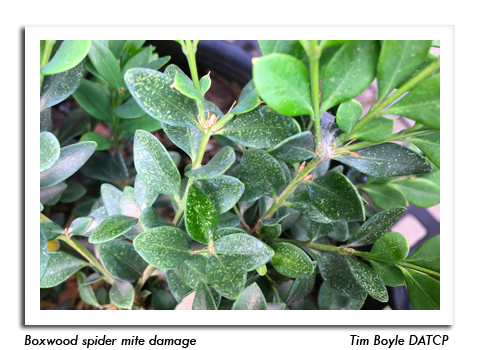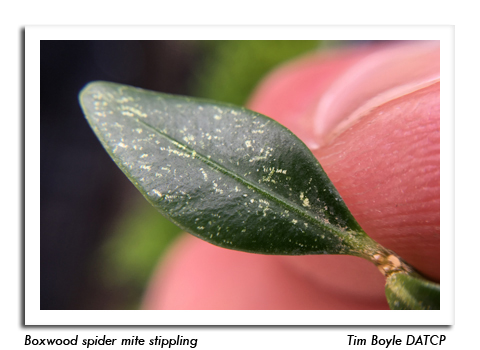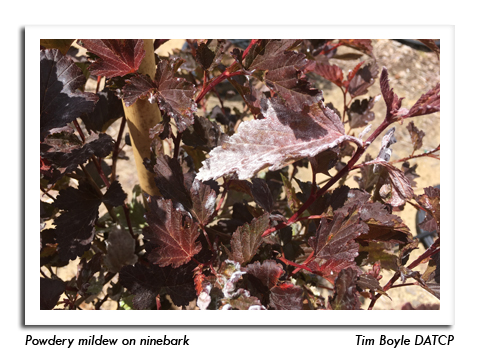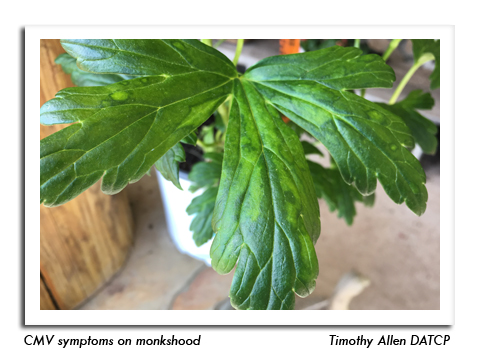
 |
|
|
Nursery & Forest
Volume 64 Number 10 Date 07/04/2019 BOXWOOD SPIDER MITE - Damage from this spider mite was noted on 'Green Velvet' boxwood stock at a Vernon County garden center last week. Boxwood mite feeding causes leaf stippling that may vary from yellowish to brown depending on the severity of the infestation. In serious cases, premature leaf drop occurs. Like other mite pests, damage often intensifies as summer weather becomes hotter and drier. Light infestations in summer can be controlled by oil or soap spray applied two times, 7-10 days apart. Heavy infestations may require a residual miticide. Natural enemies of mites include green lacewings, lady beetles, harvestmen and spiders. POWDERY MILDEW - Ninebark 'Center Glow' in a central Wisconsin growing field was infected with this common fungal disease. Powdery mildew is easily diagnosed on most plants by the grayish white powdery growth on leaf and flower surfaces that causes foliage to turn yellow and die prematurely. Powdery mildew may develop on dry foliage, though ideal conditions are high humidity and temperatures of 60-80°F. Once powdery mildew is a problem, removing and destroying all infected plant parts is key. Overhead watering and late summer applications of nitrogen fertilizer, which can encourage tender new and susceptible growth, should be avoided. For severe infections, routine fungicide treatments every 10-14 days can be effective. -- Tim Boyle, DATCP Nursery Inspector CUCUMBER MOSAIC VIRUS - Monkshood plants in Iron and Marathon counties were recently found to be infected with cucumber mosaic virus (CMV). This virus has a very wide host range and there is no known cure. Symptoms of CMV can include mottled or blotchy coloration or ringspots on infected plants. Preventive measures including immediate disposal of infected plants and control of pest vectors (i.e., aphids) are critical to limiting its spread. -- Timothy Allen, DATCP Nursery Inspector 



|
|
|